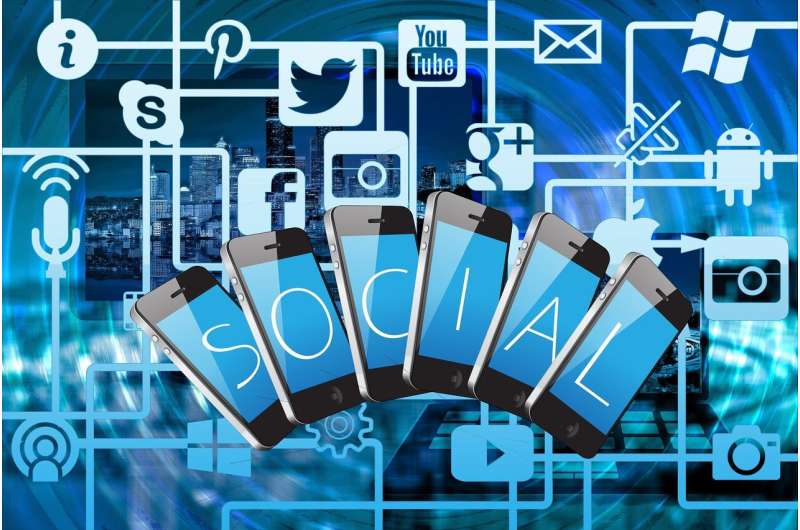This article has been reviewed according to Science X's editorial process and policies. Editors have highlighted the following attributes while ensuring the content's credibility:
fact-checked
trusted source
proofread
Stigmatizing content on social media affects perceptions of mental health care, study reveals

Research has shown that social media can negatively impact people's mental health. But can it affect people's beliefs about mental health treatment?
Yes, according to researchers at Union. In one of the first studies to examine the impact of social media on people's perceptions of mental health care, researchers discovered that viewing just a few social media posts that mock mental health treatment can have a profound impact on some people's attitudes toward treatment.
The study appears in the latest issue of the journal Social Media + Society.
For the study, 186 participants viewed 10 tweets. The gender breakdown was 67 percent male, 32 percent female. For half of the participants, five of the tweets derogated mental-health treatment (e.g., "My friend is feeling sad again today. It's not depression or bipolar—those aren't real. STOP WHINING") The other participants viewed tweets that had nothing to do with mental health treatment.
Participants were then asked for their opinions about treatment. The derogatory posts had no effect on male participants or among female participants who held traditional views toward gender roles of femininity. However, women who did not hold such traditional views of femininity were affected by the negative posts. They reported more stigma against mental health treatment.
"The research shows that even exposure to brief social media posts that derogate mental health treatment can have large impacts on what people think about mental health treatment, at least among a subset of the population," said George Bizer, professor of psychology and chair of the department. He was co-author of the study, along with Sarah Competiello and Catherine Walker, associate professor of psychology.
According to the National Institute of Mental Health, about 51.5 million adults in the U.S. experienced a mental health condition in 2019. Of those, less than half, or 23 million, received professional psychological help. One of the factors that may prevent people from seeking help is the stigma surrounding mental health.
Prior research has shown that there is an association between high levels of mental health stigma and negative attitudes toward help-seeking. Limited research, however, has explored the extent to which social media content may play a role in increasing negative attitudes toward mental health treatment.
Bizer said researchers were surprised to learn that women who don't hold traditional views of gender roles toward femininity viewed the derogatory posts differently.
"This was the most interesting part of the study," Bizer said. "We're not sure why, but the results suggest that men might be generally less malleable in terms of their attitudes toward mental health treatment, and that women who do hold traditional views might generally be comfortable seeking assistance, and these views may have shielded people from the negative posts. But this is all speculation at this point."
Ultimately, Bizer said, "the study provides additional insight into how social media can impact us and how people may be impacted differently as a function of their gender and personality."
More information: Sarah K. Competiello et al, The Power of Social Media: Stigmatizing Content Affects Perceptions of Mental Health Care, Social Media + Society (2023). DOI: 10.1177/20563051231207847




















